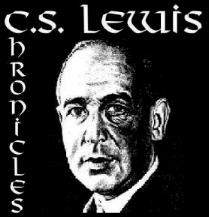
Lewis' Favorite Books
Writers Who Influenced His Philosophy and Faith
C.S. Lewis was an avid reader. He also had an extraordinary and enviable capacity to recall what he read. In 1962, The Christian Century approached the preeminent academic apologist for the Christian faith with the question of which books had been the most influential in his life. The precise question was: "What books did most to shape your vocational attitude and your philosophy of life?" Lewis' response was published in the June 6, 1962 issue of the magazine.
It can be assumed that the Holy Scriptures would have been the single most important book to Lewis, although he did not include this self-evident text on his list. At the same time, it must be noted that Lewis did not possess a contemporary "fundamentalist" attitude towards the Bible. While he read it virtually every day of his life following his conversation (except when he was extremely ill), Lewis affirmed that "it is Christ himself, not the Bible, who is the true word of God. The Bible, read in the right spirit and with the guidance of good teachers, will bring us to Him." Thus, the written word is the avenue for encounter the living Word.
Many of the works which Lewis cited as the ten most influential in his professional and philosophical life, are available in electronic versions on the internet.
1. Phantastes by George MacDonald
2. The Everlasting Man by G. K. Chesterton.
3. The Aeneid by Virgil
4. The Temple by George Herbert
5. The Prelude by William Wordsworth
6. The Idea of the Holy by Rudolf Otto
7. The Consolation of Philosophy by Boethius
8. Life of Samuel Johnson by James Boswell
9. Descent into Hell by Charles Williams
10. Theism and Humanism by Arthur James Balfour
In Lewis' final interview, conducted for Decision magazine by editor Sherwood Wirt, he reiterated that The Everlasting Man significantly influenced his faith. In response to the question "what Christian writers have helped you," he also included "Edwyn Bevan's book, Symbolism and Belief, and Rudolf Otto's The Idea of the Holy, and the plays of Dorothy Sayers."
The C.S. Lewis Readers' Encyclopedia includes a variety of other volumes expressly referred to by Lewis as influential in his life. They include:
The Bible (especially the Psalms and New Testament
Centuries of Meditations by Thomas Traherne Confessions by Augustine
He Came Down from heaven by Charles Williams
The Imitation of Christ by Thomas à Kempis
Introduction to the Devout Life by Francis de Sales
The Man Born to Be King by Dorothy Sayers
Pilgrim's Progress by John Bunyan
The Sermon on the Mount by Charles Gore
Philosophy of the Good Life by Charles Gore
Serious Call to a Devout & Holy Life by William Law
An Appeal by William Law
Smoke on the Mountains by Joy Davidman
Theologia Germanica
Works by Jane Austen, Scott and Trollope
Following Lewis' lead, these authors are well worth reading... however, it is the opinion of the host of C.S. Lewis Chronicles, that (aside from the Scriptures) Lewis' works themselves should be the object of our first contemplation.
Return to C.S. Lewis Chronicles